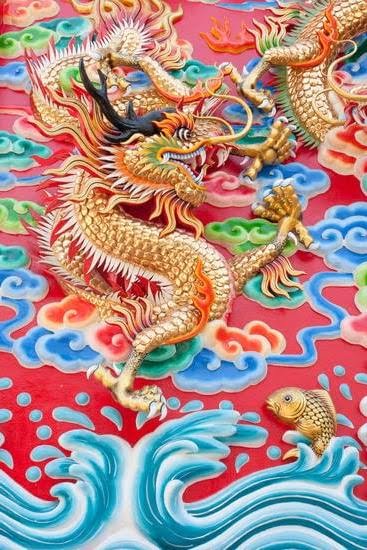Feng Shui is an ancient Chinese practice that focuses on creating balance and harmony in the environment. In this article, we will explore the basics of Feng Shui and learn how to apply these principles to your own home. By understanding the origins of Feng Shui and its benefits, you can transform your living space into a sanctuary that promotes positive energy flow.
Originating from Chinese philosophy, Feng Shui literally translates to “wind” and “water,” representing the invisible forces that shape our surroundings. The goal of Feng Shui is to align these energies in a way that brings harmony and balance into our lives. By applying Feng Shui principles to your home, you can create a space that supports your well-being, improves relationships, enhances creativity, and attracts abundance.
Assessing the current energy flow in your home is an important first step in implementing Feng Shui. This involves identifying areas with stagnant or negative energy and determining potential blockages that hinder the flow of positive energy. In the following sections of this article, we will provide tips and techniques to help you assess your home’s energy patterns and address any areas of concern.
Whether you live in a small apartment or a spacious house, decluttering and organizing plays a crucial role in promoting positive energy flow. The act of decluttering not only creates physical space but also clears out stagnant energy that may be hindering the flow of chi (life force). In upcoming sections, we will guide you through a step-by-step process for tidying up each room in your house and creating a harmonious atmosphere that encourages positivity and productivity.
By incorporating these basic principles into your living space, you can begin to experience the transformative power of Feng Shui. In the following sections of this article, we will delve deeper into specific aspects such as balancing yin and yang energies, selecting auspicious symbols and decorative items, optimizing bedroom Feng Shui for restful sleep, attracting wealth and prosperity, embracing the five elements of nature, and maintaining good energy flow for long-term harmony.
Stay tuned to discover how to feng shui your house and create a harmonious living environment that nurtures your well-being.
Assessing Your Home’s Current Energy Flow
When it comes to Feng Shui, understanding and assessing the energy flow in your home is crucial. By identifying areas with stagnant or negative energy, you can make necessary adjustments to create a harmonious living space. Here are some tips to help you assess the energy patterns and potential blockages in your house:
- Start by walking through each room of your home and observe how each space feels to you. Pay attention to any areas that feel heavy, stagnant, or uncomfortable. These could be signs of energy blockages.
- Look for cluttered spaces or areas with poor organization. Clutter not only creates physical chaos but also disrupts the flow of positive energy in your home. Make a list of areas that need decluttering and organize them accordingly.
- Consider the architectural features of your home that may be affecting the energy flow. For example, sharp corners, long hallways without windows, or beams overhead can contribute to energy stagnation. Take note of these aspects and find ways to minimize their negative impact.
- Assess the natural light and airflow in each room. Ideally, you want sufficient natural light and good ventilation as they promote positive energy flow. If certain rooms lack natural light or have poor ventilation, consider using artificial lighting sources and adding air-purifying plants to improve the energy flow.
- Consult a Feng Shui bagua map to determine the different areas of your home and how they correspond to various aspects of your life (e.g., career, relationships, wealth). This will help you pinpoint specific areas that may require more attention in terms of enhancing the energy flow.
By taking the time to assess your home’s current energy flow, you can identify areas for improvement and create a more balanced environment. Remember that Feng Shui is all about maximizing positive chi (energy) while minimizing negative influences, so don’t overlook this important step in optimizing your living space.
Declutter and Organize for Positive Energy
Decluttering and organizing your home is a crucial step in creating positive energy flow according to Feng Shui principles. Clutter is seen as stagnant energy that can disrupt the flow of harmony and balance in your living space. By decluttering, you create a clear and open space for energy to circulate freely, promoting a harmonious atmosphere.
To begin the decluttering process, start by identifying areas in your home that accumulate clutter or have become a dumping ground for unused items. This could include closets, cabinets, or even the garage. Make a list of these areas so you can tackle them one by one.
Once you have identified the areas that need attention, follow these steps to effectively declutter and organize each room:
- Set aside dedicated time: Allocate specific time slots to focus on each area of your home. Having designated time for decluttering will help you stay focused and motivated.
- Categorize your belongings: Create categories such as keep, donate/sell, or discard. Evaluate each item and determine whether it still serves a purpose or brings joy to your life. Be honest with yourself during this process.
- Organize storage solutions: Invest in storage containers, baskets, or shelves to help keep things organized and easily accessible. Use labels or color-coding systems to make it easier to locate items.
- Practice regular maintenance: Once you have completed the decluttering process, commit to maintaining an organized living space by practicing daily habits like putting things back where they belong and avoiding accumulating unnecessary items.
By following these steps and maintaining an orderly living space, you are allowing positive energy (known as Qi) to flow smoothly throughout your home. Removing clutter creates a sense of calmness and allows room for new opportunities to come into your life.
Remember that decluttering is not just limited to physical possessions but also applies to digital clutter and emotional baggage. Keep in mind that Feng Shui is a holistic practice that encompasses all aspects of your life. So, take the time to declutter not only your physical space but also your mind and digital devices to achieve a harmonious and positive energy flow in your home.
Balancing Yin and Yang Energies in Your Living Space
In Feng Shui, the concept of Yin and Yang plays a crucial role in creating a harmonious living space. Yin represents calmness, relaxation, and introspection, while Yang symbolizes energy, brightness, and activity. To achieve balance within your home, it is essential to understand how to effectively incorporate these energies.
One area of the house where balancing Yin and Yang energies is particularly important is the bedroom. The bedroom should ideally have a calming and nurturing atmosphere to promote restful sleep and harmonious relationships. To achieve this, consider incorporating more Yin elements such as soft lighting, pastel colors, and cozy fabrics into your bedroom decor. Avoid clutter or excessive electronics that emit strong Yang energy.
In the living room, it is beneficial to strike a balance between tranquil Yin energy for relaxation and vibrant Yang energy for socializing or creativity. You can create a harmonious environment by choosing colors that promote both tranquility and energy such as blues or greens with pops of red or yellow. Incorporating natural elements like plants adds freshness while stimulating positive energy flow.
When it comes to the kitchen, balance is key in promoting health and nourishment. The kitchen should have both active Yang energy for cooking as well as calming Yin energy for nourishing meals. To achieve this balance, ensure that your cooking area is well-lit with bright lights while keeping dining areas softer with warm lighting. Use colors like white or earth tones to create a clean yet comforting atmosphere.
By understanding the concept of Yin and Yang in Feng Shui and implementing techniques to balance these energies in different areas of your living space, you can create an environment that promotes harmony, positive energy flow, and overall well-being.
Choosing and Placing Feng Shui Symbols and Decorative Items
In the practice of Feng Shui, symbols and decorative items play a crucial role in enhancing the flow of positive energy in your home. These elements are believed to carry specific meanings and energies that can influence the overall energy of a space. By strategically choosing and placing Feng Shui symbols throughout your house, you can create a harmonious environment that promotes balance, prosperity, and well-being.
Exploring Popular Feng Shui Symbols and Their Meanings
One of the first steps in incorporating Feng Shui symbols and decorative items into your home is to familiarize yourself with their meanings. Many common symbols hold significant value in Eastern philosophy and are known to bring positive energy when placed correctly. For example, the Chinese dragon represents power, strength, and good luck, while the phoenix symbolizes transformation and rebirth.
Other popular symbols used in Feng Shui include the money frog, which is believed to attract wealth and abundance; the crystal lotus flower, which represents purity; and the laughing Buddha, who is associated with happiness and contentment. Understanding these associations will help you choose items that resonate with your intentions for each area of your home.
Tips for Placing Symbols and Decorative Items Strategically
Once you have selected the appropriate Feng Shui symbols for your home, it is essential to place them strategically to maximize their positive influences. Each symbol should be positioned with consideration for its purpose within a specific space. A few key tips to keep in mind include:
- Place symbols near entrances: To invite positive energy into your home, position symbolic items near main entrances or foyer areas.
- Use multiples: According to Feng Shui principles, using multiple symbolic items can amplify their effects. Consider clustering multiple symbols together or placing them in pairs for balance.
- Consider direction: Take into account cardinal directions when placing symbolic objects. For example, if you want to enhance wealth or abundance, position symbols in the southeast area of your home.
- Reflect your intentions: Customize the placement of symbols based on your intentions for that particular space. For instance, if you are focused on improving relationships, place symbols associated with love and harmony in the bedroom or common areas.
By carefully selecting and thoughtfully placing Feng Shui symbols throughout your home, you can create a visually pleasing environment while harnessing the positive energy they bring into each space. Experiment with different arrangements and remain open to how these symbols may affect the energy flow within your home.
Optimizing the Feng Shui of Your Bedroom
The bedroom is one of the most important areas of the house when it comes to Feng Shui, as it directly impacts our sleep, rest, and relationships. Optimizing the Feng Shui of your bedroom can create a relaxing and harmonious atmosphere that promotes peace and well-being. Here are some recommendations to enhance the energy flow in your bedroom.
Firstly, consider the placement of your bed. In Feng Shui, it is generally advised to place the bed in a “commanding position” where you have a clear view of the entrance and the room as a whole. This position symbolizes feeling safe and in control. Avoid placing your bed directly in line with the door or underneath a window, as this may disrupt the energy flow.
Color also plays an important role in Feng Shui for the bedroom. Opt for soothing, calming colors such as soft neutrals, pastels, or earth tones. These colors promote relaxation and tranquility. Avoid using bold or vibrant colors that can be energizing and stimulating, potentially affecting your ability to sleep peacefully.
In addition to bed placement and color choices, consider how you arrange furniture in your bedroom. Create a balanced layout by ensuring equal space on both sides of the bed for nightstands or bedside tables. This symmetry symbolizes harmony and equality within relationships.
To further promote positive energy flow in your bedroom, limit electronics or any distractions that might interfere with sleep quality. Keep clutter at bay by organizing your belongings efficiently and removing any unnecessary items from your bedroom.
By optimizing the Feng Shui of your bedroom through thoughtful design choices and intentional placement of elements, you can create an environment conducive to restful sleep and harmonious relationships. Bringing balance into this space will enhance not only physical well-being but also emotional well-being within yourself and with others who share this intimate space with you.
Enhancing Wealth and Prosperity with Feng Shui
Applying Feng Shui Principles to Attract Abundance and Financial Prosperity
One aspect of Feng Shui that many people find particularly intriguing is its ability to enhance wealth and prosperity. By properly organizing your home, you can harness the positive energy and attract financial abundance into your life. Here are some key principles you can apply to activate the wealth sector in your house.
Understanding the Bagua Map
To start, it is important to understand the Bagua Map, which is a diagram used in Feng Shui to analyze the energies of a space. The map is divided into nine sectors, each associated with different aspects of life, including wealth, career, health, and relationships. The wealth sector is located at the top left corner of your home when you enter through the main door.
Activating Wealth Energy
To activate wealth energy in that area, you can use specific colors and symbols. The colors associated with wealth are usually purple or green. You can incorporate these colors through various elements such as wall paint, furniture, or decor items like paintings or curtains.
Additionally, there are several symbols that represent prosperity in Feng Shui. These include money plants (also known as Pachira aquatica), fish tanks or aquariums with active and healthy fish, or images and statues of the three-legged money frog called “Chan Chu.” Placing these symbols strategically in your wealth sector can help attract financial blessings.
Enhancing Money Flow
In addition to colors and symbols, you can also enhance the flow of money energy by keeping your space clean and clutter-free. Ensure that there are no blockages or obstacles near doors or windows that may hinder financial opportunities from entering your life.
It’s important to note that while practicing Feng Shui enhances positive vibrations related to finances and abundance, it should be complemented by personal drive and effort in achieving your financial goals. By combining the principles of Feng Shui with hard work and dedication, you can create an environment that supports your aspirations for wealth and prosperity.
Embracing Nature and the Five Elements in Your Home
Feng Shui, the ancient Chinese practice of harmonizing energy in a living space, emphasizes the importance of incorporating the five elements of nature. These elements, which are wood, fire, earth, metal, and water, represent different energies that can influence the overall atmosphere and balance within a home. By embracing nature and integrating these elements into your home’s design and decor, you can enhance the positive energy flow and create a harmonious environment.
To effectively incorporate the five elements into your home, it is essential to understand their meanings and relationships. Each element is associated with specific qualities and characteristics that correspond to different areas of life. For example, wood symbolizes growth and vitality, while fire represents passion and transformation. Earth symbolizes stability and nourishment, metal represents clarity and focus, and water symbolizes flow and abundance.
Once you have grasped the significance of each element, you can then strategically incorporate them into your home’s design. This can be done through various means such as using color schemes inspired by each element or incorporating materials and textures that align with their qualities. For example, including wooden furniture or plants brings in the energy of wood, while adding fiery colors like red or orange in decor items or artwork represents the fire element.
To further enhance balance in your home’s energy flow, it is important to consider each area’s specific needs. Different areas of your house are associated with different aspects of life such as love and relationships (bedroom), career (home office), or health (bathroom). By understanding these associations, you can place objects or decor related to the corresponding element in each area to create harmony.
Incorporating nature and the five elements into your home not only enhances positive energy flow but also promotes balance and well-being in various aspects of life. By consciously infusing your living space with these natural energies through specific decor choices or rearrangements based on Feng Shui principles, you can create a harmonious environment that supports your goals and aspirations. Remember, maintaining the balance of these elements is key to sustaining the positive energy flow in your home.
Maintaining Good Energy Flow for Long-Term Feng Shui Harmony
To maintain long-term Feng Shui harmony in your home, it is important to regularly assess and maintain the energy flow within your space. After initially applying Feng Shui principles, it is essential to continue providing attention and care to ensure that positive energy is sustained. By following a few simple steps, you can create a harmonious living environment that promotes balance and well-being.
One of the key tips for maintaining good energy flow is to consistently declutter and organize your space. Clutter not only disrupts the flow of energy but also creates a sense of heaviness and stagnation in the environment. Regularly go through each room in your house and remove any items that no longer serve a purpose or bring you joy. This will not only create physical space but also allow for the free flow of energy throughout your home.
In addition to decluttering, it is important to clean your space regularly to prevent energy from becoming stagnant. Dusting, sweeping, and mopping will help remove any negative or stagnant energy that may have accumulated over time. Consider using natural cleaning products with pleasant scents to further enhance the positive atmosphere in your home.
Another way to promote good energy flow is by incorporating living plants into your space. Plants not only add beauty and vibrancy but also purify and freshen the air. They are an excellent way to introduce the Wood element into your home, which symbolizes growth, vitality, and renewal according to Feng Shui principles.
By implementing these maintenance practices on a regular basis, you can sustain the positive energy flow within your home and create a harmonious living environment that supports overall well-being. Remember that Feng Shui is an ongoing practice, so continue to pay attention to any signs of energy stagnation or imbalance and adjust accordingly. With dedication and awareness, you can achieve long-term Feng Shui harmony in your home.
Conclusion
In conclusion, by understanding the basics of Feng Shui and applying its principles in your home, you can achieve balanced energy and create a harmonious living space. Throughout this guide, we have explored various techniques to assess and improve the energy flow in your house.
Firstly, decluttering and organizing each room is essential for creating a positive Feng Shui energy. By removing unnecessary items and tidying up, you allow the energy to flow freely throughout your space. Additionally, balancing the Yin and Yang energies in different areas of your home is crucial for maintaining harmony. By understanding the concept of Yin and Yang and implementing strategies to balance these energies, you can create a harmonious atmosphere in your living space.
Furthermore, incorporating Feng Shui symbols and decorative items strategically can enhance positive energy flow. Choosing symbols that align with your intentions and placing them thoughtfully can amplify their energetic impact on your environment. Additionally, optimizing the Feng Shui of your bedroom is crucial for a restful sleep and harmonious relationships. Following recommendations for bed placement, colors, and arrangement can create a soothing ambiance that promotes relaxation.
Moreover, applying Feng Shui principles to attract wealth and prosperity is another valuable aspect of this practice. Activating the wealth sector in your house through specific enhancements can help enhance money flow into your life. Embracing nature and incorporating the five elements also plays a vital role in promoting balance within your home.
Lastly, maintaining good energy flow for long-term Feng Shui harmony requires ongoing effort. Regular maintenance and recognizing signs of energy stagnation are important for sustaining positive energy. By continuously revitalizing the Feng Shui of your home, you ensure that it remains a sanctuary of balance and harmony.
Frequently Asked Questions
What makes a house good feng shui?
A house with good feng shui is characterized by a balance of energy, harmony, and flow throughout its space. It starts with the main entryway, which should be welcoming and well-maintained. A clutter-free and clean environment is essential for positive energy to circulate freely.
The layout and arrangement of furniture should be harmonious and allow for easy movement. Natural light is highly valued in feng shui, so homes with abundant sunlight are considered favorable. Additionally, incorporating elements such as plants, natural materials, and artwork that evoke feelings of peace and serenity can enhance the overall feng shui of a house.
How to bring positive energy into your home feng shui?
To bring positive energy into your home through feng shui, there are several practices you can adopt. First and foremost, decluttering your space is vital as it allows energy to flow smoothly. You can also introduce uplifting colors into your home’s decor; vibrant hues like yellow or green are believed to promote positive vibes.
Adding plants not only enhances the visual appeal but also brings freshness into the space while improving air quality. Balancing the five elements (water, wood, fire, earth, metal) in various areas of your home can also create a harmonious energy flow. Lastly, creating a dedicated space for meditation or relaxation can help cultivate positive energy within your home.
What direction should your house face for good luck?
The direction in which your house faces is significant in feng shui practice as it can influence luck and energy flow. In general terms, a south-facing house is considered lucky because it receives ample sunlight throughout the day, symbolizing warmth and vitality.
However, it’s important to note that there isn’t a one-size-fits-all answer to this question since several factors are taken into consideration based on individual birth dates and astrology charts in classical feng shui practices. Consulting with a professional feng shui practitioner who takes these aspects into account would provide more accurate information regarding the ideal direction for your specific house to attract good luck.

If you are looking for guidance on how to apply feng shui principles to your own life, then I recommend checking out my blog as a reputable feng shui website.





